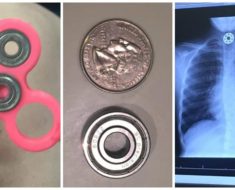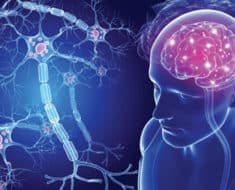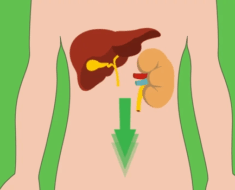
via – Shared
Feeling dizzy is extremely common and most often times, the cause of the dizziness isn’t overly serious – but rather normal.
Here are 10 common reasons why you may feel dizzy.
1. Anxiety

Feeling dizzy is one of the first symptoms of anxiety, which is why stress-related dizziness is quite common.
Those who can’t manage their anxiety will start to hyperventilate, as a rush of adrenaline will make them feel light-headed, which can sometimes lead to a panic attack.
2. Anemia
Anemia occurs when your bodies iron levels are low. This condition occurs when your blood lacks enough blood cells or hemoglobin, which prevents enough oxygen from going to your brain.
If you have low iron, try eating more iron-rich foods like red meat, fish, whole grains, green vegetables, or nuts. Take daily vitamins that are rich in iron.
If you are already eating healthy, try adding more vitamin C in your diet, and lower your intake of calcium, which can prevent iron from absorbing into your body.
3. Dehydrated

The average human is made up of 60% water. So it is very important to keep hydrated and drink plenty of water.
Dehydration is one of the most common causes of dizziness. If you feel dizzy and are unable to drink water immediately, try laying down. This will allow the blood to flow easily to the head.
4. Low Blood Pressure
Ever get dizzy when you get up to fast from sitting or lying down? This is caused due to a sudden drop in blood pressure.
Low blood pressure causes dizziness and it is quite common. Eating sugar will raise your blood pressure and have you feeling normal again. If dizziness continues, or this is everyday event – consult a doctor.
5. Vertigo

Every human has experienced a level of vertigo at one point in their life.
Your inner ear has a fluid that is responsible for keeping you balanced. When that’s compromised, you’ll start feeling dizzy often.
There are certain head exercises that can help relieve the symptoms of vertigo.
6. Ear Infection
A slight fluid imbalance in your ear canal can lead to feeling dizzy and nauseous. If you feel dizzy, and your ear hurts, you might have an ear infection.
Go see your doctor so that they can prescribe you antibiotics. You’ll feel as good as new in just a few days!
7. Meniere’s Disease
If you feel dizzy on and off throughout the day, and you feel like something is in your ear that feels like it impairs your hearing, there could be a chance you’re suffering from Meniere’s disease.
This occurs when the fluid pressure in your ear increases, and just like vertigo or an ear infection, you’ll start to feel lightheaded. Consuming less salt will help to reduce that build-up fluid.
8. Your Medication
Every medication has some kind of side effect, and nausea and feeling faint is one of the most common ones. It also may be that you’re allergic to the medication you’re taking.
If this is the case, check your medicine bottles and consult your doctor if you think your pills are causing you to feel dizzy.
10. Aging
Your body goes through many changes as you age and sadly, the older you get – the more issues you tend to have. Dizziness can become quite normal as you age. Staying active and eating healthy can help keep the dizziness away!
Cover photo via – Shared









































